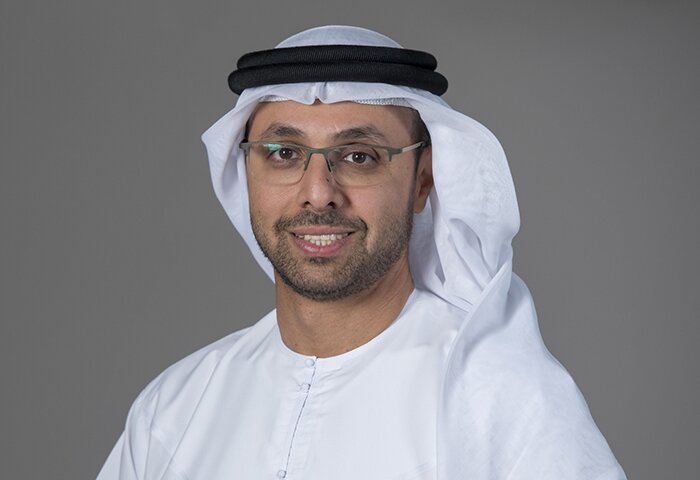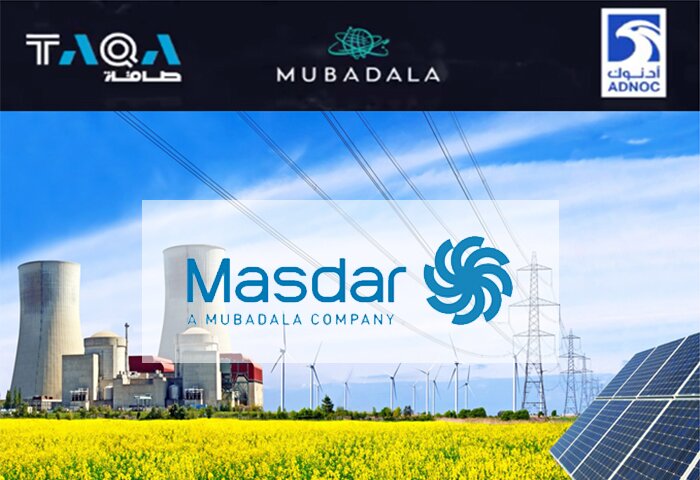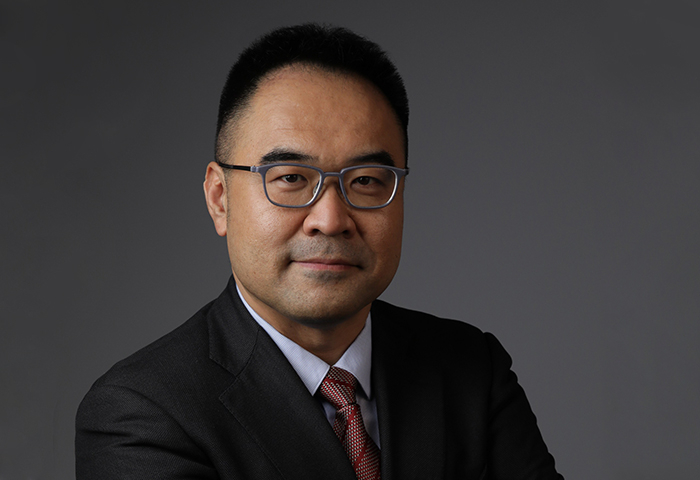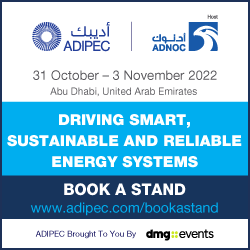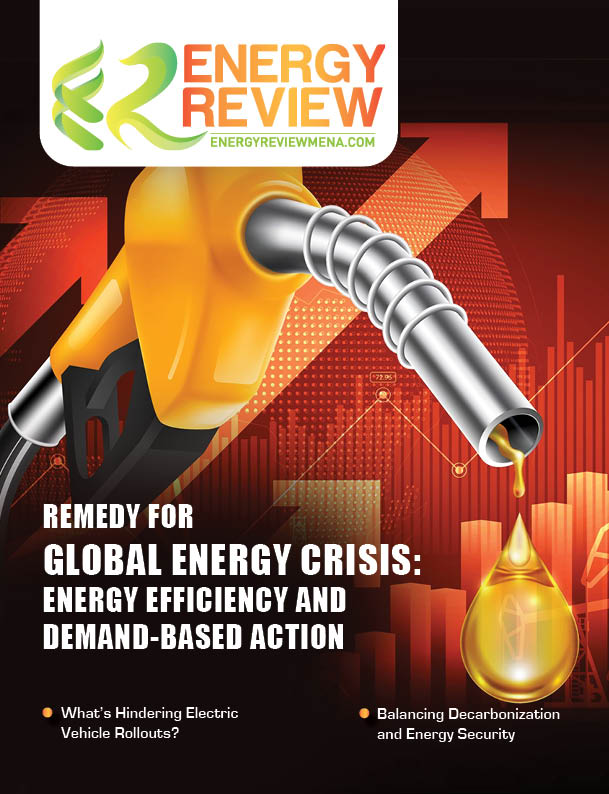Omar Al Hashmi, executive director of Transmission and Distribution at TAQA, speaks to Energy Review about his company’s efforts on driving the clean energy transition and managing the diverse portfolio of transmission and distribution assets.
How is TAQA helping industries reduce their greenhouse gas (GHG) emissions in the energy transition efforts?
TAQA is committed to being an active participant in the UAE’s emissions reduction journey, including the national net-zero by 2050 strategic initiative. In 2021, we participated in UAE government climate change and greenhouse gas (GHG) emissions target-setting mechanisms, such as the Abu Dhabi Climate Change Task Force, the Government Accelerator Program, the High-Level Dialogue on Energy (HLDE), and COP26 in Glasgow.
As an integrated utilities, Transmission and Distribution, which is the business line I lead, plays a critical role in the energy transition. While it’s important to deploy clean energy to tackle climate change, we must also look to demand side management (DSM) to help us reach our sustainability goals.
TAQA is committed to supporting The Abu Dhabi Demand Side Management and Energy Rationalization Strategy (DSM) 2030, which aims to reduce electricity consumption by 22% and water consumption by 32% across the Emirate by 2030.
A key aspect of DSM is encouraging customers to optimize their energy use. At our distribution companies, Abu Dhabi Distribution Company (ADDC) and Al Ain Distribution Company (AADC), we do this through Tarsheed, a DSM program for the Emirate of Abu Dhabi. It contributes to the aim of reducing Abu Dhabi’s water and electricity consumption per capita by 20% by 2030. The aim is to help customers understand the impact of their electricity and water usage.
For the general public and individual customers, Tarsheed uses various communications channels to provide guidance on the efficient and effective use of electricity and water. This encourages customers to adopt measures that will result in more efficient use of these resources, and thereby achieve targeted levels of demand reduction.
For example, we regularly share tips consumers can use both inside and outside their homes to save on consumption, from purchasing high efficiency appliances to sustainable gardening tips.
Through our subsidiary, Abu Dhabi Energy Services (ADES), the energy services market maker for the Emirate of Abu Dhabi, we are helping retrofit government and commercial buildings by identifying, sourcing, and funding solutions that deliver tangible reductions in water and electricity consumption.
ADES handles everything from start to finish including to identify savings opportunities, finance and commission the projects to the most suitable contractors in the market. Our clients are our partners, but we have close working relations with Abu Dhabi’s DoE as a sector regulator and TAQA’s distribution companies.
The good part is that the cost of these improvements is more than covered by the reduction in the customers’ bills and paid back through the savings in the utility bills. This ensures ADES’s projects are economically viable and creates value for its customers.
We look forward to growing the demand-side management market within the Emirate, enabling public and private entities to realize their energy savings ambitions.
How is TAQA collaborating with partners to champion its commitment for low carbon power and water?
I can give you a few examples of how we are working with partners to become the recognized champion for low carbon power and water from Abu Dhabi.
Partnership with ADNOC
We recently announced a $3.6 billion strategic, first-of-its-kind project with Abu Dhabi National Oil Company (ADNOC) to significantly decarbonize ADNOC’s offshore production operations, further strengthening TAQA and ADNOC’s position in driving and leading sustainability efforts and supporting the UAE’s net zero by 2050 strategic initiative.
As part of this project, we are building a high-voltage subsea transmission system for ADNOC to connect its offshore operations to the Abu Dhabi grid. It also allows them to channel their resources currently used to power their offsite operations for higher value purposes while tapping the grid that supplies cleaner energy from sources such as Noor Abu Dhabi solar PV plant.
The project will be funded through a special purpose vehicle (SPV) – a dedicated company that will be jointly owned by ADNOC and TAQA (30% stake each), and a consortium comprised of Korea Electric Power Corporation (KEPCO), Japan’s Kyushu Electric Power Co. and Électricité de France (EDF). Led by KEPCO, the consortium will hold a combined 40% stake in the project on a build, own, operate, and transfer basis.
Barakah Nuclear Plant
One of our proven capabilities is providing the transmission infrastructure that helps with balancing the grid. In 2020 we completed construction of 952 kilometers of 400 kV overhead lines to connect Unit 1 of the Barakah Nuclear Energy Plant to the Abu Dhabi electricity grid. We went on to make further progress by completing necessary power network expansions that enabled the Barakah plant to commence its commercial operations in April 2021.
It is through our transmission networks that we can help decarbonize the broader energy system while also meeting the increase in consumer demand.
Partnership with Etisalat
We have also partnered recently with Etisalat on an advanced metering infrastructure (AMI) project across Abu Dhabi. Over the next two years, our distribution companies – Abu Dhabi Distribution Company (ADDC) and Al Ain Distribution Company (AADC) – will work alongside Etisalat to unlock the capability of existing and new smart meters.
We’ve already started the journey towards the connectivity with more than 30% of the smart meters in Abu Dhabi already connected. This partnership will bring the connection across the Emirate to 100%.
Such infrastructure serves as the foundation which will enable future demand side management programs. In addition, these meters will pave the way toward smart grid objectives such as monitoring capacity and outage management.
Unlike traditional meters, smart meters, with advanced connectivity capabilities, can give customers access to detailed automatic readings of both their current and historical energy usage, allowing them to better understand and control their consumption. Such infrastructure serves as the foundation which will enable future demand side management programs. In addition, these meters will pave the way toward smart grid objectives such as monitoring capacity and outage management.
TAQA’s agreement with Etisalat Digital is a significant moment for our customer facing businesses. Once complete, it will ensure higher efficiency standards for our customers and contribute to digitalization of our infrastructure, accelerating operational improvements and smart grid readiness.
TAQA reported an impressive consolidated financial result of AED 6.0 billion in FY2021, please tell us how your strategy for Transmission & Distribution helped in achieving this remarkable feat?
TAQA’s full ownership of its T&D facilities in the UAE drive growth and strong returns for shareholders in a regulated and contracted market.
To support the solid operational performance and the necessary growth of the power and water network, in 2021 TAQA invested AED 1.3 billion in the development of our transmission networks, and AED 2.1 billion in expanding and strengthening our distribution networks for power and water.
We are certainly proud of the fact that in FY 2021, our business line contributed AED 4.46 billion towards Group net income, representing a rise of 13% against 2020.

